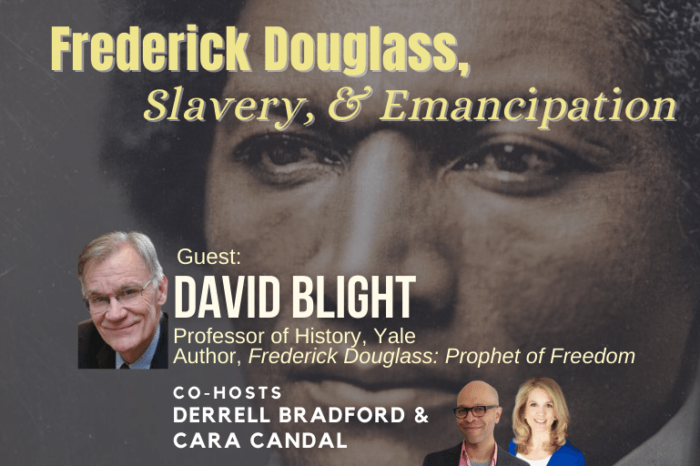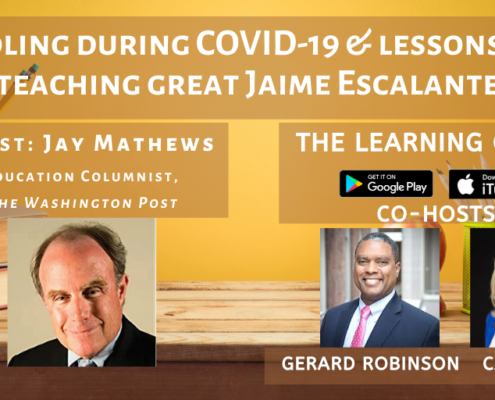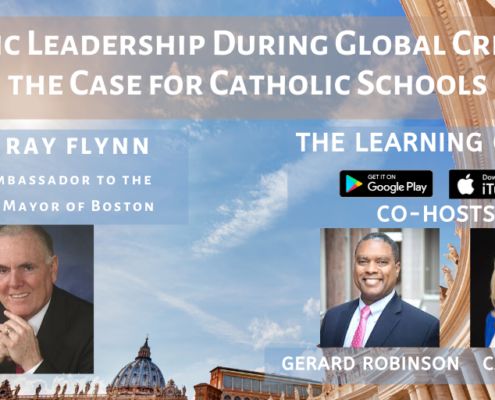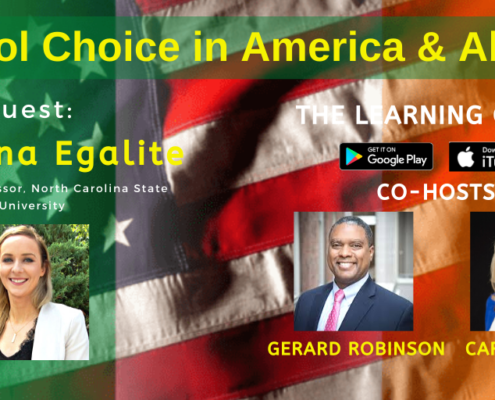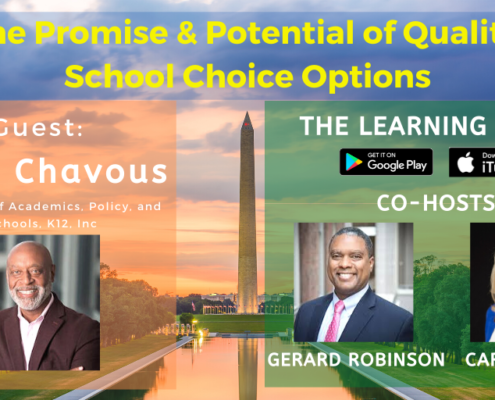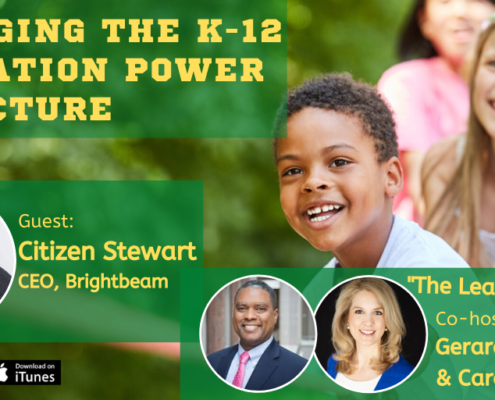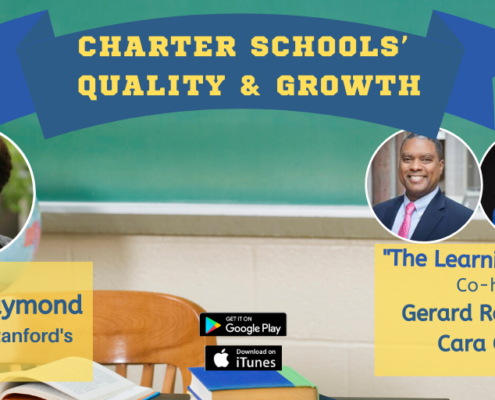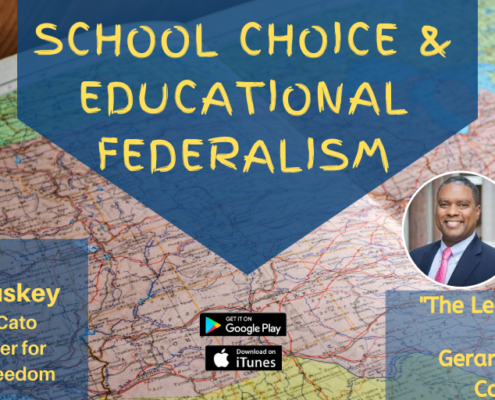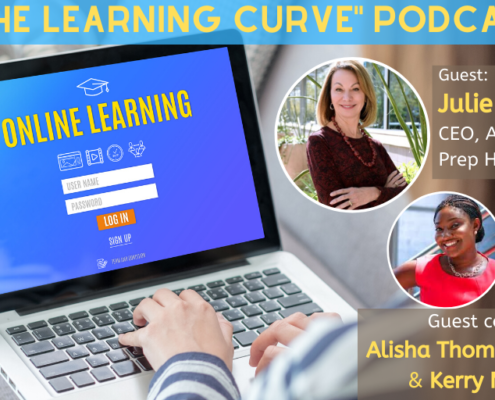Yale’s Pulitzer-Winning Prof. David Blight on Frederick Douglass, Slavery, & Emancipation
This week on “The Learning Curve,” Cara Candal and guest co-host Derrell Bradford talk with David Blight, Sterling Professor of American History and director of the Gilder Lehrman Center for the Study of Slavery, Resistance, and Abolition at Yale University. He is the author of the Pulitzer Prize-winning biography, Frederick Douglass: Prophet of Freedom. He shares what drew him as a teenager in Flint, Michigan to the study of America’s past, and to Douglass in particular. He explains the role of Walter O. Evans, to whom he dedicated the book. They explore how the former slave Douglass became America’s foremost abolitionist statesman, and his morally powerful rhetoric, including his famous 1852 speech, “What to the Slave is the Fourth of July?” They also cover his involvement in the 19th-century women’s rights movement, his marriages and family, and his later life at his home in D.C., as an elder statesman writing and shaping his enduring legacy. Professor Blight concludes with a reading from his Douglass biography.
Stories of the Week: New York City will require that all public school faculty, principals, and staff receive the COVID-19 vaccine. A Colorado school district is using innovative approaches, including billboard advertising, to address declining enrollment as a result of the pandemic.
Guest:
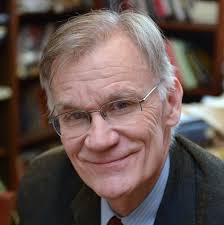 David Blight is Sterling Professor of American History and Director of the Gilder Lehrman Center for the Study of Slavery, Resistance, and Abolition at Yale University. He is the author or editor of a dozen books, including American Oracle: The Civil War in the Civil Rights Era; and Race and Reunion: The Civil War in American Memory; and annotated editions of Frederick Douglass’s first two autobiographies. He has worked on Douglass much of his professional life, and been awarded the Bancroft Prize, the Abraham Lincoln Prize, and the Frederick Douglass Prize, among others. His 2018 definitive biography, Frederick Douglass: Prophet of Freedom, won the Pulitzer Prize for History, as well as the Lincoln, Bancroft, and Parkman prizes, and other awards. In 2021, he was elected to the American Philosophical Society.
David Blight is Sterling Professor of American History and Director of the Gilder Lehrman Center for the Study of Slavery, Resistance, and Abolition at Yale University. He is the author or editor of a dozen books, including American Oracle: The Civil War in the Civil Rights Era; and Race and Reunion: The Civil War in American Memory; and annotated editions of Frederick Douglass’s first two autobiographies. He has worked on Douglass much of his professional life, and been awarded the Bancroft Prize, the Abraham Lincoln Prize, and the Frederick Douglass Prize, among others. His 2018 definitive biography, Frederick Douglass: Prophet of Freedom, won the Pulitzer Prize for History, as well as the Lincoln, Bancroft, and Parkman prizes, and other awards. In 2021, he was elected to the American Philosophical Society.
The next episode will air on Wednesday, September 1st, 2021 at 12 pm ET with guest, Nancy Poon Lue, the Chief Operating Officer for the EF+Math Program, based in Oakland, California.
Tweet of the Week:
What's his face has an interesting piece in the @washingtonpost this morning https://t.co/qg4QtfihBy@DTWillingham
— Andrew Rotherham (@arotherham) August 23, 2021
News Links:
New York Times: Covid-19 Updates: F.D.A.’s Vaccine Approval Leads Pentagon and Others to Add Requirements
https://www.nytimes.com/2021/08/23/nyregion/nyc-schools-employee-vaccine-mandate.html
Chalkbeat: Adams 14, facing another year of declining enrollment, looks to attract students with billboards
https://co.chalkbeat.org/2021/8/19/22631500/adams-14-schools-enrollment-billboards-attract-students
Get new episodes of The Learning Curve in your inbox!
Recent episodes:

